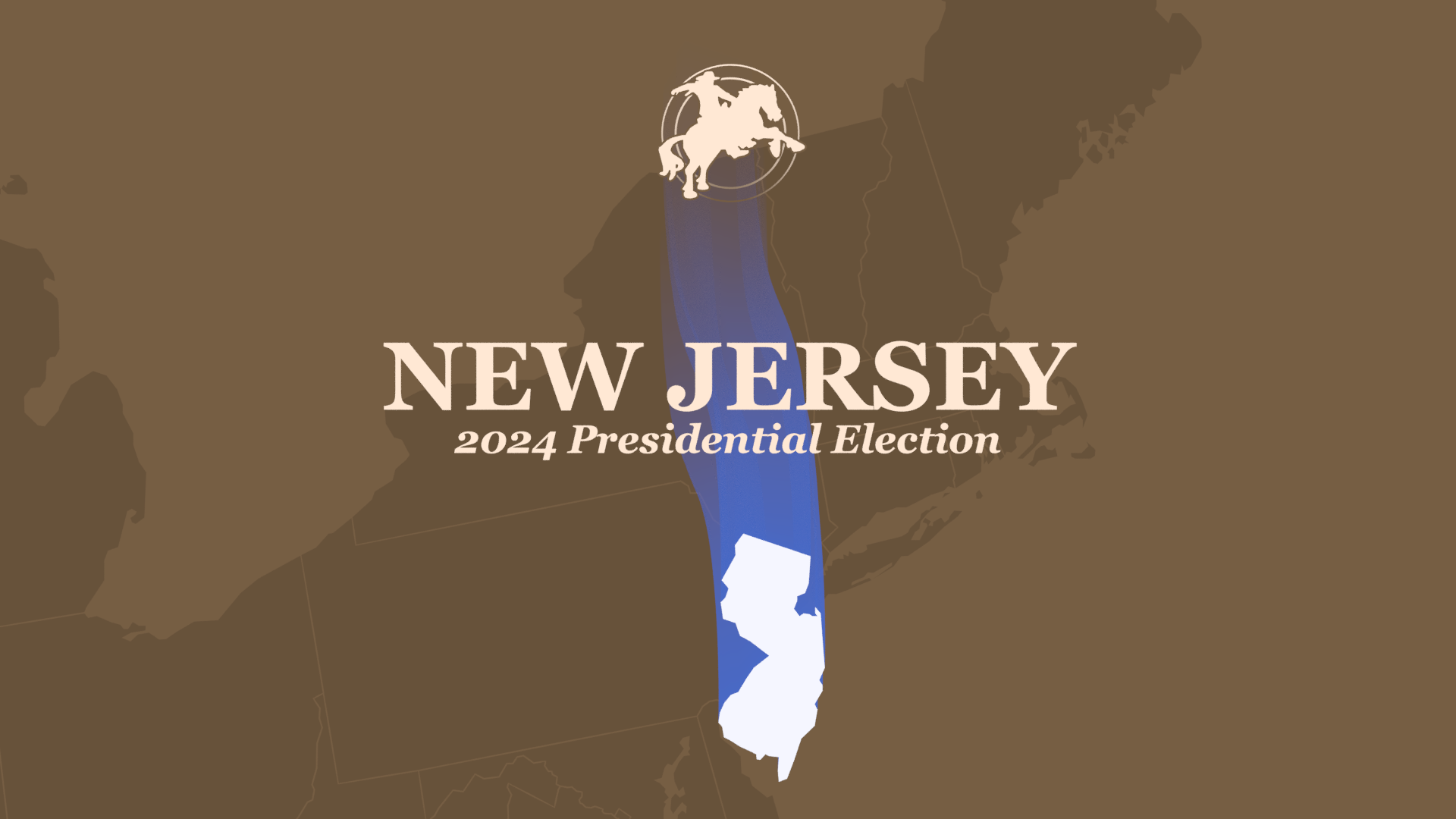
New Jersey Isn’t a Swing State, But It Could Shift Toward Trump in 2024
As we mentioned in our article about New Jersey’s Senate election, the Garden State has been home to some truly bizarre political developments this cycle, beginning with the indictment (and later conviction) of former Senator Bob Menendez and a drawn out fight over the infamous (and now obsolete) county line system. But the presidential race in New Jersey has been unusual because of what it’s lacked – namely, polls.
Normally, we wouldn’t fret too much about the state of the race in New Jersey: at the federal level, it’s a safe blue state, having gone to the Democratic nominee in every election since 1992; since 2008, a Democrat has never received less than 54% of its popular vote. But the scant few polls that were released indicated that Joe Biden may have been in some trouble in New Jersey – an Emerson College poll had him up on Donald Trump by only six points (which would be the worst percentage margin for a Democratic nominee in New Jersey since John Kerry’s result in 2004, when most of the state was still reeling from 9/11), and the right-leaning co/efficient actually had him trailing the former president by 1% in late June (Zogby Strategies also released a poll on behalf of Robert F. Kennedy Jr.’s campaign showing Biden defeating Kennedy head to head and Kennedy barely edging out Trump in a one on one matchup in an effort to portray the president as “the real spoiler,” but the less said about that the better).
So, we’re now in a situation where we have very little polling data coming out of New Jersey, and what little data has come out has been bad for Democrats (even though they have yet to poll Trump against Kamala Harris). Combine that with the nearly 100,000 people flocking to Wildwood to see a Trump speech back in May, and this has led to a situation where some Republicans have gotten their hopes up about New Jersey. But what’s really going on?
For starters, there are some reasons to expect that Trump could pick up some ground in New Jersey, even if it’s unlikely to deliver him the state. Half of New Jersey is in the New York media market, which has been saturated with stories about refugees straining the housing supply and social services as well as a perceived rise in crime, issues that Republicans poll well on. Last spring’s pro-Palestinian protests at Columbia University also received a high share of media coverage in the market, and as the second most Jewish state in the union, concerns about leftwing antisemitism from otherwise liberal Jewish voters and high turnout from Republican-leaning Orthodox communities like those in Lakewood the state’s margin in favor of Trump. To a certain extent, these trends have been reflected in recent election results; while Democrats expanded their majorities in the state legislature in 2023 and slowed a Republican drift that had picked up steam in the southern and central parts of the state in 2021, the party was less successful at the local level in the kinds of northern suburbs that have been key to defeating Trump-era Republicans in recent years, such as Millburn, Summit, Westfield, and Cranford.
But all of this media attention isn’t universally good news for Trump. The former president’s 34 felony convictions were handed down just across the Hudson River in Manhattan, and the discourse surrounding Trump’s shady business dealings and financial gymnastics may evoke unhappy memories of his failed casinos in Atlantic City, which he claims enriched him personally, even though he still owes contractors money. Trump’s pledges to repeal the SALT cap could hypothetically help him in the wealthy suburbs that raced away from him in 2020 – but he’s also probably hurt by the fact that he was the one who signed the cap into law in the first place, and its most vocal critics have been Democratic New Jersey representatives like Josh Gottheimer and Mikie Sherrill (Harris has indicated that she will allow most of the Tax Cuts and Jobs Act, which created the SALT cap, to expire, but has not taken an explicit position on the SALT issue).
If you’re looking for some crumbs of election data for the woefully under-polled New Jersey, you may have to settle for September’s special election in the state’s 10th congressional district, which saw Democrat LaMonica McIver blow away Republican Carmen Bucco by a nearly 66 point margin. The outcome was never in doubt – the Newark-based 10th is the most Democratic district in a Democratic state – and turnout was predictably low, but McIver did outperform both Joe Biden and her predecessor Donald Payne Jr. in the district, particularly in whiter and more suburban portions of the district like West Orange and Verona.
It’s not much, but a Democrat could point to it as a sign that the anti-Trump coalition of the party’s traditional urban minority base and well-heeled suburbanities will stay in tact for at least one more cycle. Of course, a Republican could point to the slight red shifts in Newark as a sign that the racial depolarization suggested by some polls is real and will spell doom for Democrats. Both would be relying a bit too much on conjecture to make a solid case, but in these completely hypothetical figures’ defense, it’s not like they have a whole lot else to go off of outside of history and fundamentals. Neither do we, which is why we expect a slight red shift in New Jersey – but not one nearly large enough to push the state into doubt for Harris.